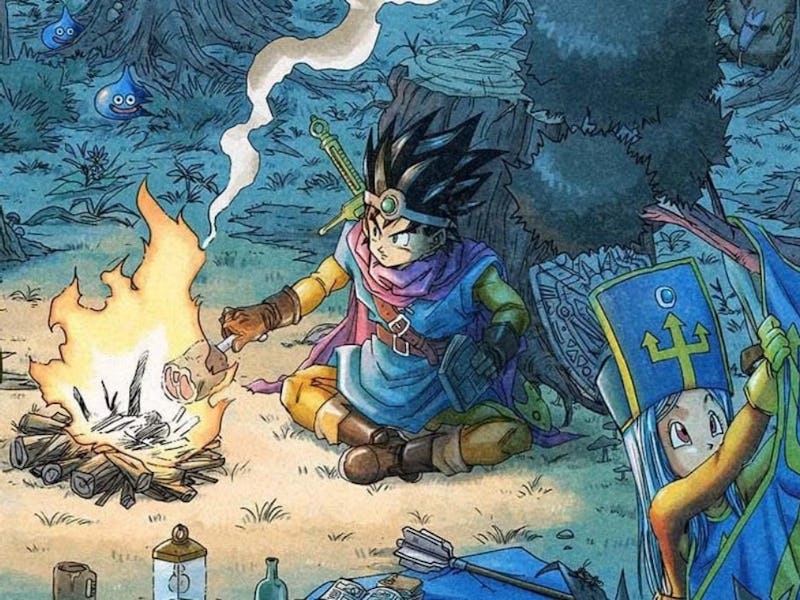Dragon Quest 3 Is the Best HD-2D Game Yet, But Its Producer Is Wary of Using the Style Too Much
Too much of a good thing.

Dragon Quest 3 is undoubtedly one of the most important RPGs ever made, and its HD-2D Remake breathes new life into the game while still respecting its nostalgic history. It makes a strong case for Square Enix’s HD-2D format being used for future remakes, but the game’s producer, Masaaki Hayasaka, is wary of doing just that and “over-saturating” the market. While it’s tempting to think of the dozens of games that could be remade, Hayasaka is taking a smart stance here that speaks to a larger problem in the video game industry as a whole.
During a new interview with Bloomberg, Hayasaka touched on the idea of remaking more games with the HD-2D format, and how the team is currently unsure about the approach that should be taken.
“If we were to release too many games in succession, that would lead to people being bored of those games. On the flipside, if there’s too much of a span between launches, that can also lead to the series not seeming as vibrant and robust anymore,” Hayasaka says, “It’s a sensitive topic. It’s something that even my supervisors are constantly unsure and mulling over.”
Dragon Quest 3 Remake completely overhauls the game’s visual, but still makes sure it feels “nostalgic.”
That’s an interesting statement on multiple levels. For one, it gives us some valuable insight into why Square Enix remade Dragon Quest 3 in the first place. The last mainline entry in the franchise, Dragon Quest XI: Echoes of an Elusive Age, released back in 2017 — and the next entry, Dragon Quest XII, has notably faced some development troubles. Seven years later, we still have no idea when Dragon Quest XII could release, and haven’t even seen anything beyond a teaser trailer.
Remaking Dragon Quest 3 (and Dragon Quest I & II) gives Square Enix a stopgap, give fans and newcomers something to dig into while the twelfth game figures things out. Of course, HD-2D has been a massive success for Square Enix, so it makes sense to simultaneously take advantage of the enthusiasm fans have for it.
Dragon Quest 3 is technically the second HD-2D remake, with the first being 2022’s Live A Live. Outside of that the team behind HD-2D, Team Asano, has been almost exclusively creating HD-2D games since 2018. The style has undoubtedly been a hit with fans, due to a robust blend of nostalgia and fresh design. But there is such a thing as too much of a good thing, and it’s good to see the developers thinking about that.
While HD-2D might seem like a simple visual style, there are clear improvements made from 2018’s Octopath Traveler to this year’s Dragon Quest remake.
The gaming industry at large has shifted to having a major focus on remakes and remasters. Resident Evil 4, The Last of Us, Metal Gear Solid 3, Silent Hill 2, Prince of Persia: The Sands of Time — the list goes on and on. Video game development is expensive, and a remake or remaster is a safer way to get more bang for your buck, cashing in on the goodwill people already have for an existing experience. Square Enix itself has leaned into the remake trend harder than almost anyone, with the last two years alone seeing Star Ocean The Second Story, Romancing SaGa 2, Final Fantasy 7 Rebirth, Dragon Quest 3, and Fantasian Neo Dimension.
It’s fair to say things are bordering on the “too much” side of things, so taking care and time with any future HD-2D games will be vital. Hayasaka recently told Inverse that he’d love to see an HD-2D remake of Final Fantasy VI, and while that’d be a monumental undertaking, it might be the best choice based on Final Fantasy’s brand power and cadence of releases.
Hayasaka also tells Bloomberg he’d like to see other Dragon Quest remakes, but it largely depends on the reception of Dragon Quest 3.
But it’s also important that Team Asano has the chance to create something entirely new — some of its best games are still Bravely Default and Octopath Traveler because of how fresh and different they both feel, even to this day. Team Asano has shown that when it has creative freedom it can create something truly unique, and hopefully that hesitation to double down on remakes is an indication that the studio will still get to have that kind of freedom. The same logic that applies to remakes applies to HD-2D as a whole, and maybe Team Asano could use something brand new on top of all that HD-2D stuff.
There’s certainly a reason for video game remakes to exist — Dragon Quest 3 is a prime example of that in how it appeals to newcomers and longtime fans, providing a way to preserve a key piece of history. But everything needs to come in moderation, and true innovation, even for things like HD-2D, can’t happen without experimentation and taking chances on new experiences. Luckily, it seems like Team Asano understands that.